Pebbles, gravel, gravel
These natural resources are always easily accessible, often, there is even no need to spend on them.
But of the minuses it is worth notingthat pots with this kind of drainage are very heavy. And also their thermal conductivity is high, that is, it is dependent on the environment. The roots of plants can freeze in winter on the windowsill, because the stones absorb all the cold.
It is recommended to rinse the stones in a solution of potassium permanganate and dry them before use.
Aquarium crumb
On the shelves of pet stores, you can find small pebbles for an aquarium from sea pebbles. Their thermal conductivity is as high as that of the stones from the first point. This type of drainage does not retain water, so it does not feed the plants with moisture between waterings.
Pay attention to the size of the crumbs - very small crumbs will quickly rinse out of the pot.
Expanded clay
Lightweight fired clay balls are great for draining. Sizes are different, fractions from 5 to 20 mm are suitable.
TO pluses we will attribute:
- lightness of the material,
- high moisture content,
- affordability,
- long service life.
May affect the acid-base balance of the soil, which threatens plant health.
Broken brick
This option will help out an amateur floristif the necessary material is not at hand.
Small pieces of red brick are excellent at retaining water and keeping the soil moist for a long time. In this, expanded clay and brick are similar. But the weight of the second is much greater. The advantages include the fact that such drainage can be found almost at every step.
Ceramic shards
If your favorite ceramic dishes are broken, do not rush to throw away the fragments. They can be saved and placed in the bottom of the pot in the future.
Clay is considered a "warm" material, so the roots are not afraid of cold. The porous structure retains moisture during watering and retains it for plants.
Be careful, sharp pieces can injure you and the root system. Therefore, it is better to file the sharp edges with a file.
Sintepon down
Surprisingly, non-woven polyester fiber insulation meets all the requirements for a good drainage layer. The following are noted pros using synthetic winterizer down as drainage in flower pots:
- low weight of the filler;
- the ability to saturate the substrate with air;
- the material does not rot, which excludes the appearance of fungus in the soil.
- economical consumption in comparison with other analogs of drainage.
Styrofoam
This is the kind of material that is almost always at hand. Lightweight, sterile, resistant to infection.
Worth paying attentionthat the foam does not retain moisture and therefore does not transfer it to the flowers when needed. Also, the roots of plants grow into it over time, so when transplanting, the root system can be damaged.
Charcoal
A worthy alternative to the usual materials.Lightweight, porous, environmentally friendly heat-treated product. In addition, coal is neutral in acidity and has antiseptic properties on the soil, preventing root diseases.
Of disadvantages, stains everything it comes into contact with.
Eggshell
A folk method that is often confused with soil fertilization. In fact, all organic materials are susceptible to rotting when they are in a humid environment for a long time, which means they can become a source of poor plant health.
Use them only recommended for short periods, for example, for seedlings that linger on the windowsill for several months.
Sand
Sand can also be used as drainage, but it is worth considering that small grains are quickly washed out of the pot with water, due to which the service life is significantly reduced. Better to just add it to the soil.
In the modern world, the assortment of drainage material is huge. When choosing, you should pay attention to those criteria that are necessary for each specific plant. Size, shape of the pot, environmental characteristics, frequency of watering and ease of use are important. With the proper organization of the drainage layer and care in general, each flower is doomed to a healthy and long existence.

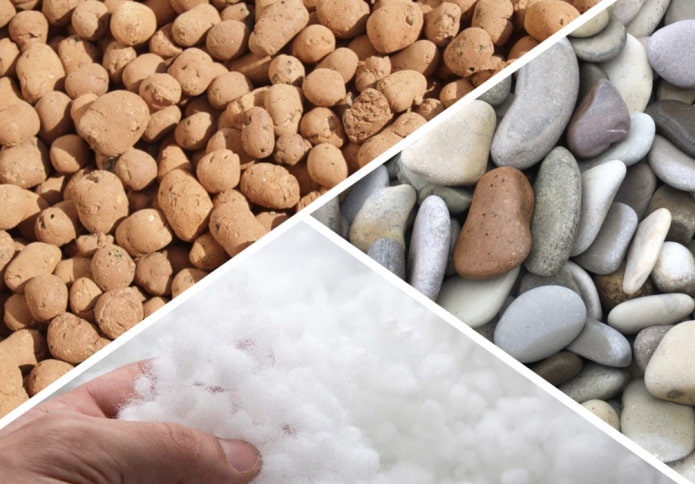
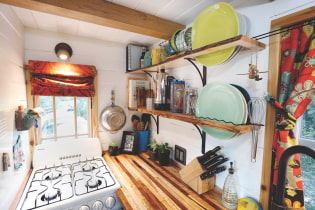 10 practical tips for arranging a small kitchen in the country
10 practical tips for arranging a small kitchen in the country
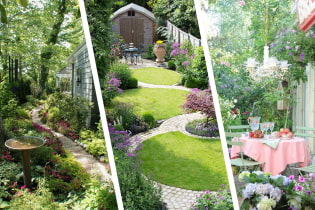 12 simple ideas for a small garden that will make it visually spacious
12 simple ideas for a small garden that will make it visually spacious
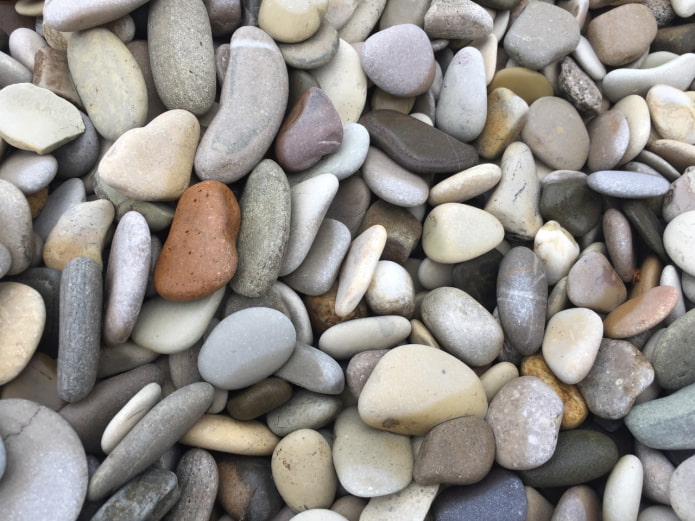
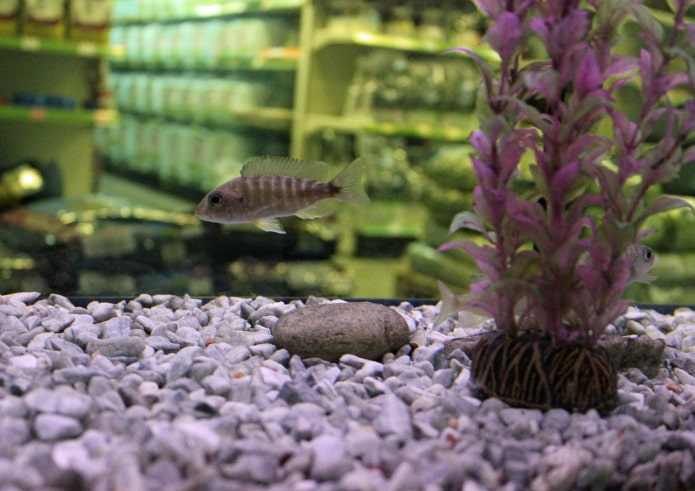
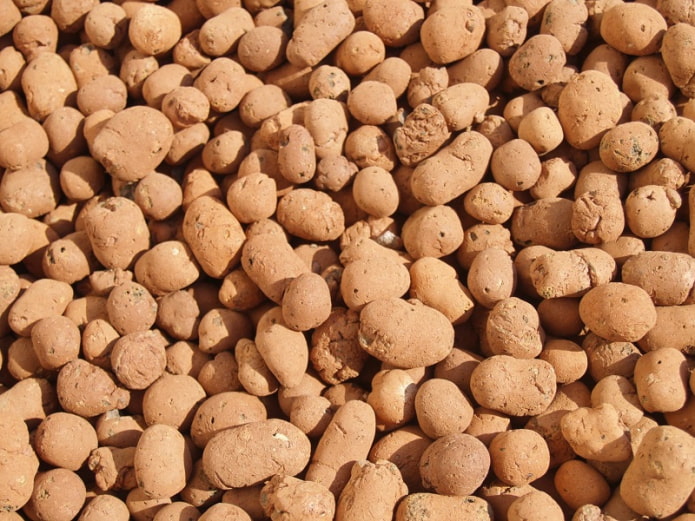
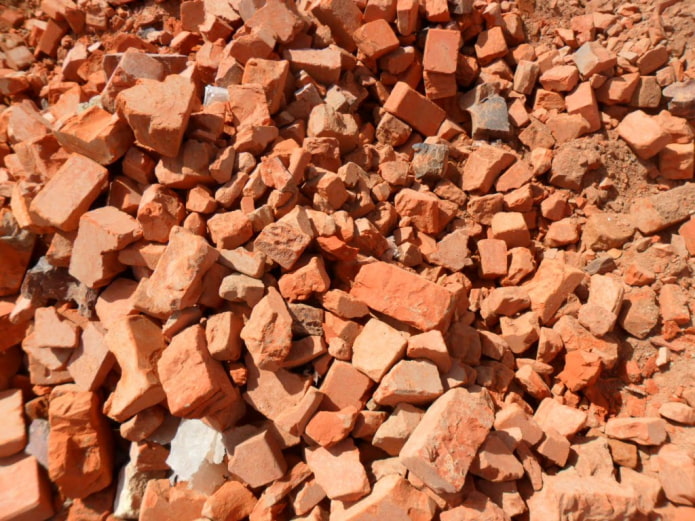
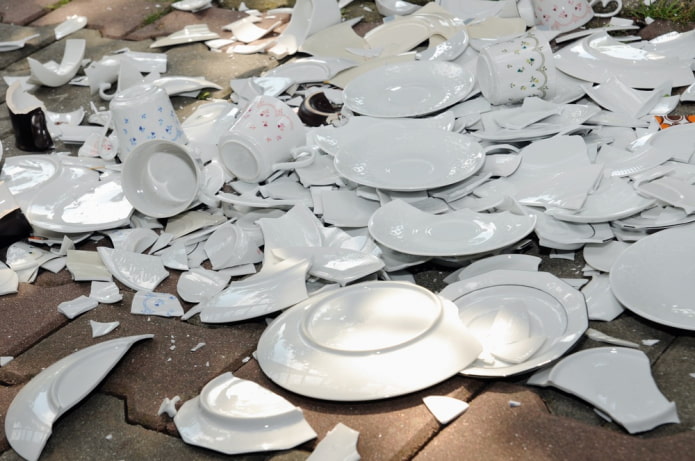
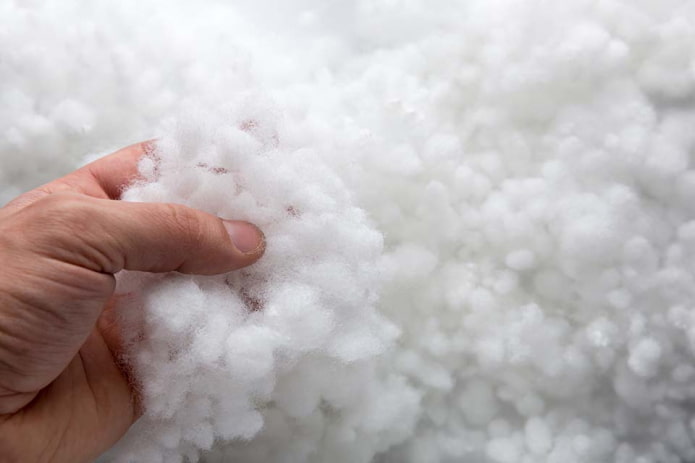
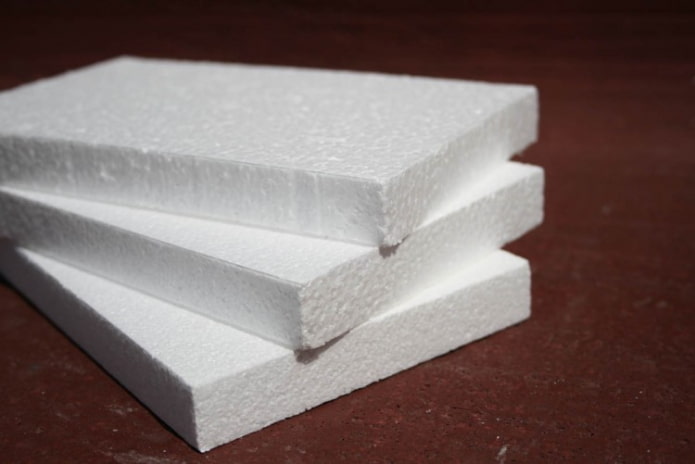
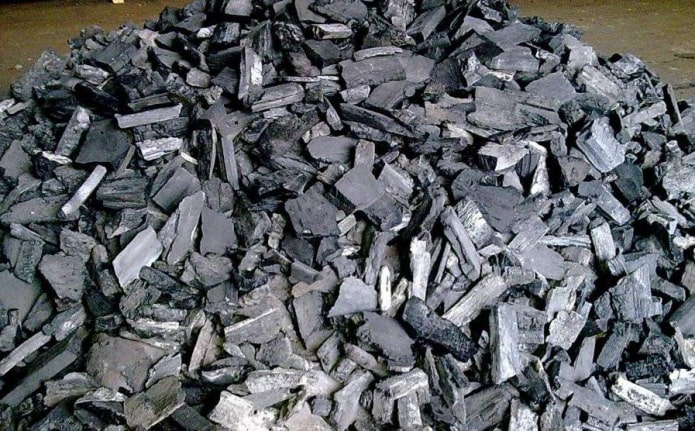
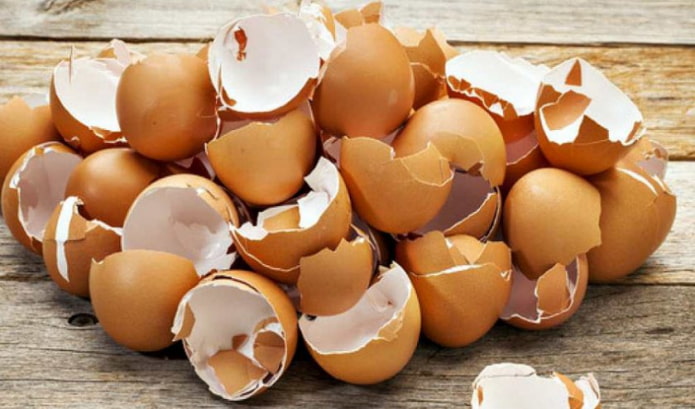
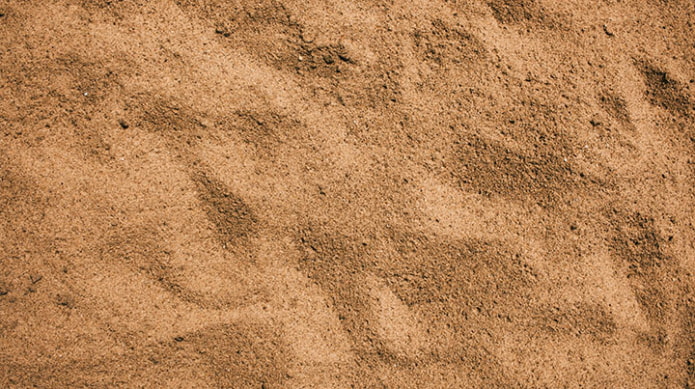
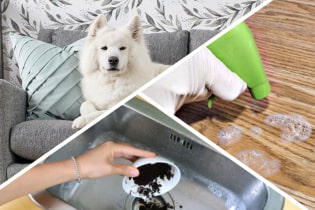 13 bad habits a good housewife shouldn't have
13 bad habits a good housewife shouldn't have 24/7 home cleanliness - 4 secrets for the perfect housewife
24/7 home cleanliness - 4 secrets for the perfect housewife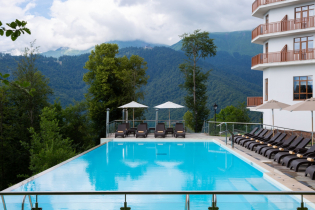 6 hotels in Sochi that will give odds to the promoted foreign hotels
6 hotels in Sochi that will give odds to the promoted foreign hotels Top 10 interior design trends 2020
Top 10 interior design trends 2020 Rating of cheap TVs with Smart-TV
Rating of cheap TVs with Smart-TV New Year's LED garlands on AliExpress - we disassemble while it's hot, so that it's bright at home
New Year's LED garlands on AliExpress - we disassemble while it's hot, so that it's bright at home